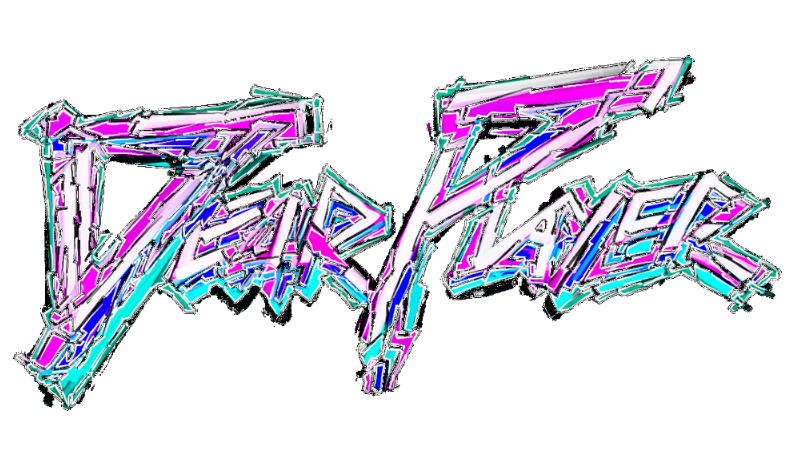CALL FOR PAPERS
Conference: ‘Affecting Game Space: Theory and Practice’
CFP DEADLINE: 7th August 2021
DATE: 3rd September 2021
From claustrophobic confines to sublime vistas, game spaces have conjured affects since the medium’s inception. Whether it be nostalgia for the remastered landscape, the vertigo of free diving in VR, or the conviviality of gathering around landmarks in Pokémon GO, affect reciprocally connects players to physical and virtual spaces. Haptics, ray tracing and photogrammetry are allowing us to ‘feel’ game worlds in new and increasingly tangible ways. As Nitsche observes: “Video game spaces stage our dreams and nightmares and they seem to get better at it every year” (2008: 2). How then do we (co-)design, feel, construct and play with affect in game spaces?
As the inaugural event of the ‘Game Worlds’ research cluster connecting theory and design at the University of Edinburgh’s Centre for Data, Culture and Society, the ‘Affecting Game Space’ online conference will be built around quickfire presentations followed by breakout groups, with the potential for demo/exhibition space. We hope to welcome you to a network of like-minded academics and practitioners based at The University of Edinburgh virtually through the spatial video conferencing platform ‘Gather,’ facilitating free movement, conversation and networking.
While Caillois wrote evocatively of Ilinx as a category of games predicated on “voluptuous panic” (1961: 23), marginalising it in his racialised taxonomy of games, in recent years scholarly interest in affect and sensation in games has gathered pace with Anable’s Playing with Feelings (2018) concerning surfaces and touch, Keogh’s A Play of Bodies (2018) concerning sensation and the cyborg, and Gray’s Intersectional Tech (2020) concerning blackness and performative spaces/discourses of resistance. Alongside this affective turn in game studies, there has been a renewed interdisciplinary interest in atmospherics (Ash, 2012; Böhme, 2013) – the way affects, moods and aesthetics accrete in architecture and connect bodies in space. No space or atmosphere is neutral, however, nor reducible to invisible code, as recent work on games’ representation attests (Murray, 2017; Russworm, 2017). New developments in game design and technology are facilitating new modes of game space, atmosphere and affect from the growing adoption of binaural sound (Hellblade, 2017), untethered VR (Quest 2, 2020), and virtual worlds of increasing diversity, complexity and affective intensity (Devotion, 2019; We Are the Caretakers, 2020; The Last of Us Part II 2020).
However, spatial affects are nothing new to cultures of play on the sports field or game board; new experiments in the fields of LARP and ‘audiogames’ do not need novel technologies to engage player minds and bodies. Nor should we claim that all areas of development are internationally and culturally universal (Jin, 2021) or unproblematic when ludic affects appear to be entrapping bodies in new economies of attention. Perhaps the time has come to nuance or problematise loose concepts such as ‘immersion’ and ‘flow’ (Chen, 2007), as Soderman (2021) has argued, and explore which kinds of affective space we might find pleasurable attachment to (Patterson, 2020), and which reinforce existing hierarchies (Fickle, 2019).
Building on the momentum of interest in the intersection of space, affect and play, we invite theory and practice-based provocations and papers of 10 minutes on topics such as (but not limited too):
Intersectionality, power and game space
Urban space and alienation in play
Transnational dynamics/contrasts in RTS/MOBA strategies
Boredom and mobile games
Landscape aesthetics and open worlds
Haptics and the multiple senses of touch
Interface design and affective attachment
Games staging comedy/tragedy
Queering spaces of play
Sound design and ambient horror
Practices of dwelling/kinship in games versus practices of colonisation
Space, time and games as historical drama
Gendered/Racialised/heteronormative level design
Problematising/nuancing ‘flow’ and ‘immersion’
Mood management and game environments as respite
Environmental narratives and hauntology
Material aesthetics in games
Social play and anxiety
Lighting and virtual architecture
AR and memories of place
Echoes and audiogames
LARPs and emotional ‘bleed’
Designing critical ‘atmosphere’
Space and the non-human
Proposals of up to 300 words to be sent to merlin.seller@ed.ac.uk or tom.boylston@ed.ac.uk. Deadline 7th August 2021. Please provide your title, an abstract concerning your work/topic, and contact details. Posters and video submissions are welcome. We particularly wish to support and include submissions from BAME, queer, neurodiverse and precarious scholars of all genders – please do email us if you have any questions regarding accessibility or the microconference more broadly.
Tom Boylston and Merlin Seller
Game Worlds Cluster
Centre for Data, Culture and Society
The University of Edinburgh


